Timothy Barkham
Doctor, Tan Tock Seng HospitalDr Barkham studied medicine and Clinical Microbiology at St. Thomas’ Hospital Medical School in London.
He moved to Tan Tock Seng Hospital, Singapore, in 1999.
His focus is on quality and safety, both achieved through investing in staff understanding which results in better engagement.
He has steered the diagnostic laboratory response and preparation for various outbreaks including SARS, Dengue, Chikungunya, Influenza, MERS CoV and Zika Viruses. He has worked with the same collaborators since 2003 to produce diagnostic assays used in the diagnostic laboratory. Some of these have been licensed and marketed abroad.
| 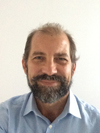 | | | Jean-Luc Butel
Global Healthcare Advisor, President, K8 Global & Senior Advisor , McKinsey&CompanyJean-Luc Butel has had a long and illustrious international career in the health care industry. Before returning to Singapore in early 2015, Butel was Corporate Vice-President and President International for Baxter, responsible for all countries outside the US. Prior to Baxter he was Executive Vice-President and Group President International at Medtronic, also responsible for all countries outside of the US. Having spent 25 years working in several Asian countries, Butel also worked for Johnson & Johnson and Becton-Dickinson both in Asia and the US. While in Japan, Butel was the Chairman of the US-Japan Business Council for three years until 2011. In 2014 he was awarded the Public Service Medal (Friends of Singapore) by the President of Singapore. He is now a Global Healthcare Advisor and has been serving on the board of EDB since 2012 where he also serves on the finance committee. In 2015 Butel was appointed to the board of ETPL at A*STAR. Since June 2016 he is an independent director on the board of Takeda Pharmaceutical where he also serves as a member of the Audit and Supervisory Committee. Butel is a member of the Novo A/S Advisory Group. He is on the board of several medical technology start-ups in Asia and Europe. He is a Senior Advisor to McKinsey’s health care practice. | 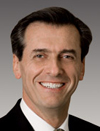 | | | Fred Kramer
Professor, New Jersey Medical School Rutgers UniversityFred Russell Kramer is Professor of Microbiology, Biochemistry and Molecular Genetics at Rutgers University, and has been a Principal Investigator at the Public Health Research Institute for the past 30 years. He also serves as PHRI's Associate Director for Business Development. He graduated from the University of Michigan in 1964 and received his doctorate from the Rockefeller University in 1969. He was on the faculty of the Department of Genetics and Development at Columbia University College of Physicians and Surgeons for 17 years, and was a Research Professor in the Department of Microbiology at New York University School of Medicine for 27 years. | 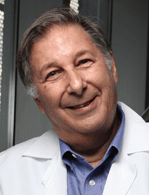 | | | Chwee Teck Lim
NUS Society Chair Professor, Department of Biomedical Engineering, Institute for Health Innovation & Technology (iHealthtech), Mechanobiology Institute, National University of SingaporeProfessor Chwee Teck LIM is the NUS Society Chair Professor of Biomedical Engineering and Director of the Institute for Health Innovation and Technology at the National University of Singapore. His research interest is in the development of microfluidic technologies for applications in disease diagnosis and health monitoring. He has co-authored over 470 journal publications and is also a serial entrepreneur having started six companies. Prof Lim is an Elected Fellow of seven academies including the US National Academy of Inventors, IUPESM, AIMBE, IAMBE, AAET, among others. He and his team have garnered numerous research awards and honours including Asia’s Most Influential Scientist, Highly Cited Researcher, Asian Scientists 100, Wall Street Journal Asian Innovation Award (Gold) and the President's Technology Award among others. | 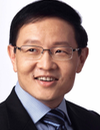 | | | Mike Makrigiorgos
Professor and Director of Medical Physics and Biophysics, Harvard Medical SchoolDr. Makrigiorgos is a Professor of Radiation Oncology and Director of the Medical Physics & Biophysics division at Dana Farber Cancer Institute and Brigham and Women’s Hospitals, Harvard Medical School. He also directs the DNA technology laboratory and the radiation pre-clinical facility. His research interests include the development of novel DNA technologies for molecular diagnostics in Oncology and he identification of circulating cancer biomarkers. He is the inventor of several PCR-based techniques for molecular diagnostics, including COLD-PCR and NaME-PrO technologies. He is a Member of the Editorial Board of Clinical Chemistry and has published over 150 articles, reviews and book chapters. | 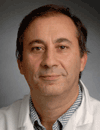 | | | Rudi Pauwels
Founder Director/Chief Executive Officer, BiocartisRudi Pauwels, PhD (M) , is the Chief Executive Officer of Biocartis and founded the company in 2007.
As a pharmaceutical scientist (1960, Belgium) , he belonged to the first group of HIV/AIDS researchers who, shortly after the discovery of HIV in 1983-1984, started the efforts to find new treatments for HIV (AIDS).
For nearly 3 decades he mainly focused on the search and development of anti-HIV drugs, a number of which have been approved and introduced in the clinic while generating several billion USD revenue and the development of diagnostic technologies and products that address the needs in this new era of high precision, more personalised medicine.
His research as well as his entrepreneurial career is driven by medical needs and the passion to advance medicine while holding a strong belief in the value of a multidisciplinary scientific, technological and clinical approach to solve the key pharmaceutical and diagnostic challenges. In 2004 he expanded his areas of interest into micro- and nanotechnology and went on a 3-year sabbatical at the Swiss Federal Institute of Technology-EPFL (Lausanne, Switzerland), one of the leading research centers in this emerging field.
Mr Pauwels is (co)-author of more than 150 papers in peer-reviewed journals and is the recipient of several awards for his scientific and entrepreneurial accomplishments.
In 2012, he and Biocartis received the Global Technology Pioneer Award from the World Economic Forum (Davos, Switzerland). He received an honorary Doctorate Degree from the University of Ghent in 2013.
Mr. Pauwels holds a PhD in Pharmaceutical Sciences from the Katholieke Universiteit Leuven, Belgium. |  | | | Shian-Jiun Shih
Partner, Kiang Consulting ServicesShian-Jiun (SJ) is a consultant serving pharmaceutical and biotechnology industry, with more than twenty years’ of industrial experience and expertise in biological product development and biomarkers.
From 2009 to 2015 she worked at the Translational Medicine Research Centre, Merck Research Laboratories, Merck Sharp & Dohme, most recently as the Director and Site Lead of Molecular Biomarkers and Diagnostics. She lead scientists with broad translational research skills, including immunoassays, nucleic acid-based assays and next generation sequencing, mass spectrometry, flow cytometry, cell-based assays, immunohistochemistry, and bioinformatics. Her group developed clinical biomarker assays to support early phase clinical trials, including those for Keytruda, collaborated with academic leaders in biomarker discovery, and established primate disease models for target validation studies.
Prior to joining Merck, she was with Cell Genesys, a biotechnology company in the San Francisco Bay Area, developing cell-based immunotherapy, GVAX, and oncolytic adenovirus-based gene therapy products from 2001 to 2008. As the Director of Assay Development, her group developed and validated quality control and clinical monitoring assays for phase 3 clinical trials, and conducted product characterization studies for BLA filing to FDA and global regulatory authorities.
While at Bayer Pharmaceuticals (2000-2001), SJ successfully developed liquid parenteral formulations and explored several novel drug delivery routes for biological drugs. From 1994 to 2000 she worked at Aventis (currently Sanofi) in various capacities, including characterization and purification of therapeutic monoclonal antibodies, development of a cell isolation medical device for bone marrow transplantation, liquid formulation and enhanced cellular delivery for gene therapy products. She started her industrial career in 1993 at BioSource (currently Invitrogen) responsible for producing antibody reagents for research and in vitro diagnostic use.
SJ received her BS degree in Chemistry from National Taiwan University, and Ph.D. in Biochemistry from University of Wisconsin–Madison, and completed the post-doctoral training in the department of Molecular Pharmacology, Stanford University.
| 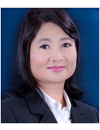 | | | Richard Simpson
Professor, La Trobe UniversityProfessor Simpson received his PhD in biochemistry and chemistry at Melbourne Univ., Australia in 1974. After post-doctoral studies at the NIH, Bethesda, Maryland, he returned to Australia as a Research Fellow at St. Vincent’s Institute of Medical Research, Melbourne, was a Member of the Ludwig Institute for Cancer Research (1983-2011), a Research Prof. at the Univ. of Melbourne and Adjunct Prof. at Yonsei Univ., Korea. He is currently a Distinguished Professor, Laboratory Head, La Trobe Institute for Molecular Science (LIMS) at La Trobe University in Melbourne, Australia. He has served as Treasurer and Secretary General of HUPO on the HUPO Executive Committee, and is currently a member of HUPO Council, and inaugural and past-President of the Asia-Oceania HUPO Executive Committee (AOHUPO). On a national level, Professor Simpson is the inaugural President of the Australasian Proteomics Society (APS). Prof. Simpson has made major contributions to the field of analytical protein chemistry and pioneered many classical microsequencing strategies and micro-fractionation tools that have been further refined for proteomics. He has made key contributions to the field of cytokine biology including the determination of the primary sequence determination of IL-6, IL-9, LIF, rEGF and the stoichiometry of the IL-6 receptor system. He and his colleagues determined the three-dimensional structure (by X-ray crystallography) of the ectodomain of the human IL-6 receptor. Over the past decade, he has developed a major program in proteomic analysis of colorectal cancer, especially in the area of novel biomarker discovery and exosome/secretome biology. He is on a number of editorial boards, and a Senior Editor on Proteomics as well as Proteomics: Clinical Applications. Prof. Simpson was elected an Honorary Member of the American Society of Biochemistry and Molecular Biology in 1996, awarded the AMRAD Pharmacia Medal from the Australian Society for Biochemistry & Molec. Biol., and was an elected councilor of the Protein Society (1993-1996). In 1995 Prof. Simpson was elected Fellow of the Australian Academy of Technological Sciences and Engineering (FATSE), in 1995 received the AMRAD Pharmacia Medal (awarded by the Australian Society for Biochemistry and Molecular Biology), in 1996 was elected Honorary Member of the American Society of Biochemistry and Molecular Biology, in 2003 was awarded the Centenary Medal from the Australian Government "For service to Australian society in research and development”, and in 2008 received the HUPO Distinguished Service Award “For indispensible contributions in his service to HUPO since the inauguration of HUPO in 2000”. In 2015 Prof. Simpson was listed a ‘Highly Cited Researcher 2015’ (Thomson and Reuters, top 1% of World’s Most Highly Cited Researchers in field of Biology & Biochemistry). He has published 457 research publications, has an h-index of 87 with >34302 citations (h-index since 2011 of 47 with >11067 citations). and holds 14 patents. With the Cold Spring Harbor Laboratory Press, Prof. Simpson has written three leading text books on proteomics – Proteins and Proteomics: A Laboratory Manual (2003), Purifying Proteins for Proteomics: A Laboratory Manual (2004) and Basic Methods in Protein Purification and Analysis: A Laboratory Manual (2009) He has edited a textbook devoted to “Proteomic Analysis of Human Plasma/Serum” (Springer) published in 2010.
| 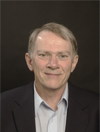 | | |
|

 Add to Calendar ▼2016-10-13 00:00:002016-10-13 00:00:00Europe/LondonDXS Track OneSELECTBIOenquiries@selectbiosciences.com
Add to Calendar ▼2016-10-13 00:00:002016-10-13 00:00:00Europe/LondonDXS Track OneSELECTBIOenquiries@selectbiosciences.com